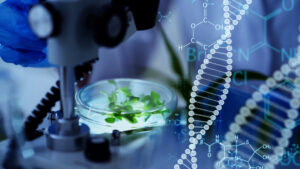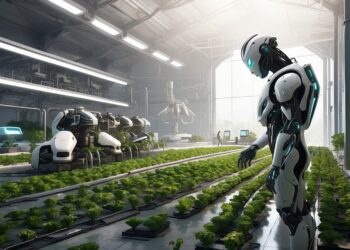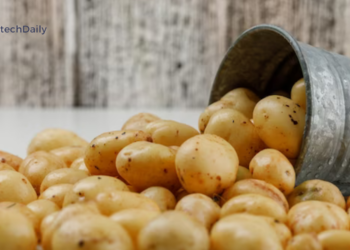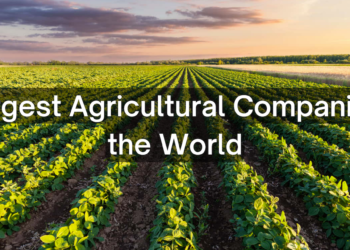Plant breeding is one of the most important strategies to increase the productivity and quality of crops. New plant breeding technologies are being developed to facilitate this process. These new technologies include genome editing, synthetic biology, artificial intelligence, digital modeling, big data analysis, and advanced computational tools for simulation.
Genome Editing
Within the last decade, genome editing has enabled crop breeders to make precise changes to plant genomes. This method has been successfully used in many crops, including soybean, tomato, strawberry, coffee, and many others. The goal of this technology is to allow scientists to make precise changes to plant genomes to improve crop traits, such as disease resistance, yield, nutritional content, and many others.
The genome editing process involves making changes to the genome of a plant. This is done using a gene editing system, which is a set of molecules that can be used to make precise changes to DNA, including deleting, adding, or changing the nucleotide sequence. As of now, there are two most popular genome editing systems: Cas9 and GBS. CAS9 is a bacterial protein that can be inserted into the genome of the plant.
Once it is integrated into the genome, it functions as a “DNA-cutting” enzyme and cuts the DNA of the plant, allowing us to make changes to the genome. GBS is composed of two bacterial genes that can be combined in a certain way to modify the DNA of the plant. The GBS system is currently the most used genome editing system in plants.
Synthetic Biology
Synthetic biology is a new discipline that applies the principles of engineering to biology. The goal of this discipline is to use engineering principles to create new living systems, for example, through gene editing or the assembly of DNA into new structures. Synthetic biologists are playing an increasingly important role in breeding new crops with improved traits.
In recent years, the use of engineered DNA in plant breeding has been growing, especially in the area of plant metabolism and biochemistry. One of the most important technologies with synthetic biology applications is the CRISPR/Cas9 system.
This system allows one to make precise changes to plants by using a Cas9 enzyme to cut the DNA. In addition to genetic engineering, synthetic biology is being used to develop new biochemistry to support the cultivation of crops. For example, scientists are currently developing biochemistry to support the production of high-value crops.

Artificial Intelligence
Artificial intelligence is a set of computational techniques that aim to create machines that are able to perform tasks that are typically done by humans, like understanding human language or doing complex calculations. These tasks are sometimes referred to as “cognitive” activities because they require a computer to solve a problem by understanding it.
AI has already been used to create a variety of improved technologies for plant breeding. In the last few years, the field of crop modeling has been increasingly influenced by AI. This field involves the development of high-performance computer models that help to predict crop performance and that predict the impact that climate change may have on crop yields.
In this context, researchers are developing new AI algorithms to make more accurate predictions. In addition, there is a need to integrate AI models with other high-throughput data to generate more useful information.
Digital Modeling
Digital modeling allows scientists to make detailed, three-dimensional models of plants with a computer. Using this method, researchers can simulate the growth of plants to understand how they respond to different conditions and to identify potential weaknesses in crops.
Researchers can use digital modeling to simulate the development of crops with complex traits, such as optimized fruit size and shape, resistance to biotic or abiotic stress, and nutrient accumulation. In these models, the development of each individual part of the plant is simulated and then the model is used to predict the effect of these changes on the whole plant.
Digital modeling can also be used to test the effects of different breeding strategies, such as candidate gene knockdown or gene editing. With this method, researchers can test various treatments to see which has the most impact on a crop.
Big Data Analysis and Simulation
As mentioned before, plant breeding is a highly data-intensive process. One of the challenges for breeders is to efficiently manage and analyze the large amount of data generated by experiments. Most plant breeding programs use automated data management tools to store, manage and analyze data. However, these tools are not designed for the complexity of modern breeding programs.
To tackle this challenge, various technologies are being applied to integrate data from multiple sources. One of these technologies is the use of novel data analysis algorithms and visualization tools. Another challenge that is being tackled by these technologies is the understanding of complex plant models. Researchers are using machine learning algorithms to create models that are able to classify plants based on their traits.

Conclusion
Plant breeding is an essential process that improves crop productivity and quality. New technologies like genome editing, synthetic biology, artificial intelligence, digital modeling, and simulation are improving this process.
These technologies can help to speed up the process of breeding new varieties and can also increase their accuracy. These technologies can also help to manage data generated during breeding programs. This will enable breeders to identify potential weaknesses in their varieties and improve their breeding strategies.









